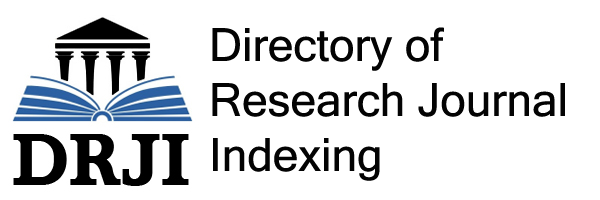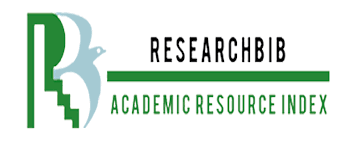Social challenge of educational competencies in physical education, primary and secondary levels, Dominican Republic
DOI:
https://doi.org/10.35622/j.rr.2023.012.002Keywords:
fundamental competencies, specific competencies, Dominican curriculum, physical educationAbstract
The text sought to analyze the social challenge of educational competencies in physical education, primary and secondary levels, Dominican Republic. It highlights the levels and degrees of knowledge through the contents in a transversal way. The fundamental and specific competences give light to the areas of knowledge, obey the abilities that students must obtain guided by the macro competences, keeping a close relationship with the curriculum in terms of learning. The framed references come from the inquiries related to the contents and specific competencies of physical education in the Dominican Republic. They obey the objective of leading the student to be aware of the care of his body and that of others, being the protagonist of his own learning. The topics addressed are cause for reflection, it must be ensured that the contents and skills go hand in hand in the teaching and learning process. The fundamental and specific competences in physical education are skills and knowledge that students must acquire in this discipline. These competencies cover different aspects, such as the development of motor skills, the promotion of physical activity, the understanding of concepts related to physical education, the promotion of health and well-being, participation in recreational and sports activities, and the development of social and emotional skills. The acquisition of these skills allows students to actively participate in physical activities, promoting their comprehensive development and adopting healthy lifestyles.
References
Arévalo Coronel, J. P., y Juanes Giraud, B. Y. (2022). La formación de competencias desde el contexto latinoamericano. Revista Universidad y Sociedad, 14(1), 517-523. https://cutt.ly/EwqRq8s0
Fuentes, G. y Lagos, R. (2019). Motivaciones hacia la práctica de actividad física-deportiva en estudiantes de La Araucanía. Revista Ciencias de la Actividad Física UCM, 20(2), 1-13. http://doi.org/10.29035/rcaf.20.2.3
Guijosa, C. (24 octubre 2018). El objetivo de la educación basada en competencias competencia. https://cutt.ly/wwqRwqil
Incháustegui, J. L. (2018). La base teórica de las competencias en educación. EduCOncere, 23(74), 57-67. https://cutt.ly/2wqRwysP
Instituto Nacional de Educación Física. (28 de mayo 2021). Destacan importancia de la educación física en procesos de enseñanza y aprendizaje. Recuperado el 11 de abril 2023 de https://cutt.ly/ZwqRwd5q
Martín, E. y Coll, C. (septiembre 2021). Los currículos basados en competencias. https://cutt.ly/PwqRwcyU
Martínez, L. (27 noviembre 2020). Enfoque por competencias: qué es, y característica de su modelo educativo. Psicología y mente. https://cutt.ly/XwqRwEV9
Olaya, M. A. C., Fernández, A. M., & Galeano, D. (2017). Competencias específicas en educación física para la formación de las estudiantes de licenciatura en educación para la primera infancia Manuela Arango Cardona. [Tesis de Licenciatura, Universidad de San Buenaventura Colombia]. https://cutt.ly/YwqRwZFT
Organización Mundial de la Salud (5 de octubre 2022). Actividad física. https://cutt.ly/2wqRw05V
Organización de las Naciones Unidas para la Educación, la ciencia y la Cultura, UNESCO (6 de mayo de 2017). Hay que educar en competencias. https://competenciasdelsiglo21.com/onu-unesco-educar-competencias/
Ministerio de Educación de la República Dominicana. (2016). Ordenanza No. 1-2016 que norma el Sistema de Pruebas Nacionales y de evaluación de los logros de aprendizaje de la República Dominicana. https://cutt.ly/twqReyHA
Ministerio de Educación República Dominicana. (2015). Consejo Nacional de Educación. Ordenanza Nº 01/2015. Establece el Currículo Revisado, Actualizado y Validado para la Educación Inicial Pública y Privada, a partir del Año Escolar 2015-2016. https://cutt.ly/KwqRefaM
Ministerio de Educación de la República Dominicana. (2016). Ordenanza 02-2016 que establece el sistema de evaluación de los aprendizajes en la educación inicial y primaria en correspondencia con el currículo revisado y actualizado. https://cutt.ly/EwqRexIm
Ministerio de Educación República Dominicana (2021). Adecuación Curricular Nivel primario. MINERD, 2013-2015. https://cutt.ly/5wqReQZE
Ministerio de Educación República Dominicana (2022a). Adecuación Curricular Nivel Inicial. 29-44. https://cutt.ly/UwqReOnj
Ministerio de Educación República Dominicana (2022b). Adecuación Curricular Nivel Secundario. https://cutt.ly/pwqReD1Z
Ministerio de Educación República Dominicana (2022c). Adecuación Curricular Nivel Primario. 95-104. https://cutt.ly/hwqReCOb
Portolés, A., & Hernández, J. G. (2016). Actividad física y niveles de Burnout en alumnos de la ESO. Retos: nuevas tendencias en educación física, deporte y recreación, (29), 95-99. https://recyt.fecyt.es/index.php/retos/article/view/39933
Prada Rozo, M. J. (2021). Las competencias ciudadanas en la clase de Educación Física: entre las miradas desde la docencia y el discurso planteado en el currículo dominicano. Revista Educación, 45(1), 257–269. https://doi.org/10.15517/revedu.v45i1.41
Santana, I. (2021). Diseño Curricular Centrado en el Aprendizaje y Diseño Curricular por Competencias. Universidad Autónoma de Santo Domingo. July. https://cutt.ly/fwqRrilY
Published
Issue
Section
License
Copyright (c) 2023 Miguel Bennasar-García, Yusefy Ramírez-Rodríguez, Rosanna Capellán-Caraballo

This work is licensed under a Creative Commons Attribution 4.0 International License.




















